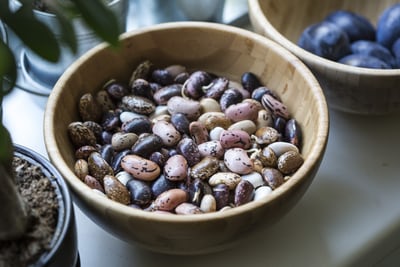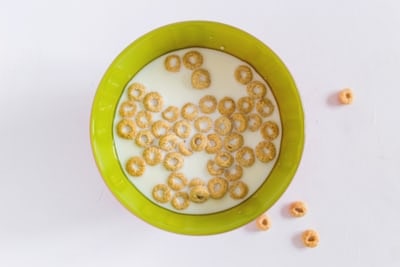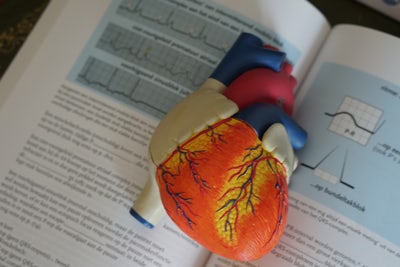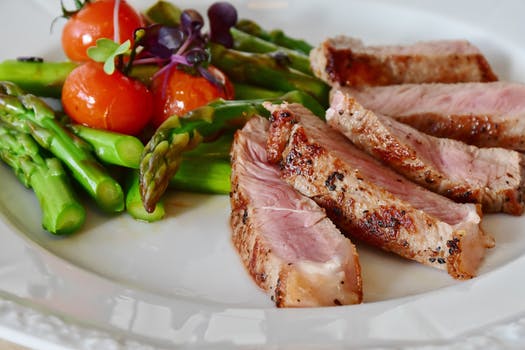Are you always the first to feel the cold? Do you have a terrible short-term memory or do you have a poor sense of smell? You may be surprised to discover the cause of these, and other strange and seemingly unrelated symptoms could be as simple as being a little low in a particular vitamin or mineral.
In this weeks post we take a look at 7 slightly weird symptoms you may not have attributed to what you eat or rather don’t eat and which vitamin or mineral the 7 symptoms may be an indication you are lacking. Plus, practical everyday foods you can up to get you back on track.
- Short Term Memory Loss – Thiamine (Vitamin B1)

When you’re introduced to someone do you remember their name or immediately forget it? Do you often walk into rooms knowing there was a reason you entered but you just can’t remember what it was? Is your memory not as fabulous as you’d like it to be?
While many things can contribute to you not remembering someone’s name or forgetting what you were looking for a poor short-term memory can also be a sign that you may have a nutritional deficiency. In particular you may be lacking in vitamin B1 otherwise known as thiamine.
Thiamine is important to the functioning of your nervous system (of which your brain clearly has a staring role). Thiamine also helps your body turn carbohydrates into energy as part of your metabolism which further fuels your brain and if this is dampened then your brain cannot perform at its best including your capacity to remember things.
Who Is Most at Risk of a Thiamine Deficiency?
Thiamine deficiency is most often seen in people who consume excessive amounts of alcohol because alcohol reduces the body’s ability to absorb thiamine, store thiamine in the liver, and convert thiamine to a usable form. Ever had a friend kindly notify you of what you did on last night’s night out of which you have no recollection? This may have had something to do with it.
What Foods Contain Thiamine?
- Wholegrains
- Legumes
- Meat (especially pork and liver)
- Nuts and seeds
- Peas
- Oats
- Eggs
- Dried Milk Powder
- Yeast

2. Poor Appetite – Vitamin B12

Do you find yourself less interested in food than you used to be or than those around you? You may have a B12 deficiency.
Vitamin B12 is best known for its role in the production of red blood cells and the correct functioning of your central nervous system which means a B12 deficiency can have all sorts of severe effects relating to these vital roles including permanent brain damage and death if severe and left untreated. However, on a less severe note an early warning sign of B12 deficiency is loss of appetite and interest in food.
Who Is Most at Risk of Vitamin B12 Deficiency?
People who do not eat animal products are most at risk of a B12 deficiency as B12 is found only in animal derived foods (for more information on B12 see my earlier blog “Why You Shouldn’t Go Vegan”).
If you have malabsorption or digestive problems such as crohn’s disease or irritable bowel syndrome (IBS) you may also at higher risk of B12 deficiency because B12 absorption requires a number of steps and a well-functioning gastrointestinal (GI) tract. As a brief introduction to intricacies of the process of B12 absorption intrinsic factor a transport protein is secreted by your stomach cells and binds to B12 so that it can be absorbed but it isn’t absorbed until a very specific part of your lower small intestine. Which means that there is quite a window for things to go wrong if any part of the process isn’t working optimally. Furthermore, the channels through which B12 is absorbed in your lower small intestine also require calcium which means that adequate calcium intake at meals is necessary for intrinsic factor to assist in B12 absorption.
Because your body only requires a very small amount of vitamin B12 on any given day and because vitamin B12 is stored well (mostly in your liver) it can take a prolonged dietary deprivation of years for you to develop signs of deficiency.
What Foods Can I Eat to Get More Vitamin B12?
- Meat (especially beef, port and organ meats)
- Eggs
- Oysters
- Fish
- Milk and other dairy products
- Non-animal sources include fortified foods such as nutritional yeast and breakfast cereals (read the labels).

3. Diminished Sense of Taste and Smell – Zinc

Have you noticed food just doesn’t taste as good as it used to?
Are you pouring on the salt and sugar to get any flavour from everything and anything you’re eating or have you recognised that you’re missing out on the smell of beautiful flowers (it’s the second week of Spring here on the east coast of Australia so there’s flowers galore at the moment!).
Perhaps if you didn’t notice before you may start noticing now others exclaiming over flavours and smells that just aren’t doing it for you… test it out and if you find it truly seems to be the case you very well may have a zinc deficiency.
Zinc has so many roles in your body including catalysing over 100 different chemical reactions, immune system function, building proteins, DNA synthesis and as well as this it is required for your proper sense of smell and taste.
Who Is Most at Risk of Zinc Deficiency?
Because your body has no designated storage facility (couldn’t think of a better word!) for zinc you need to have a daily intake to maintain a steady supply to all parts of your body where it’s actions are needed (which as you now know from the above examples is a lot of places). Therefore, those most at risk are people who don’t eat foods regularly which contain good amounts of zinc (surprise!).
What Foods Can I Eat to Get More Zinc?
- Oysters (by far the highest source of zinc)
- Crab
- Legumes
- Pumpkin seeds (pepitas)
- Nuts

4. Poor Night Vision – Vitamin A

Is it hard for you to find your way around after the lights go out at night? You may have a vitamin A deficiency.
A nutrient-poor diet in general can cause vision problems and low intakes of vitamin A are often linked to what’s known as night blindness. Night blindness is exactly what it sounds like a reduced ability to see in low light or darkness.
Why? Because vitamin A is necessary to produce a pigment (called rhodopsin) found in the retinas of your eyes which plays a role in controlling the amount of light entering your eyes and thus helping you to see at night or in low light. If you’re not eating enough vitamin A you can’t produce enough rhodopsin and therefore can’t see as well as you otherwise could at night. If left untreated night blindness can worsen to a condition known as xerophthalmia that can damage the cornea and ultimately lead to blindness.
Other early signs of vitamin A deficiency include dry eyes, inability to produce tears and spots on the whites of your eyes.
Who Is Most at Risk of a Vitamin A Deficiency?
Vitamin A deficiency is rare in developed countries and is more common in countries or areas where white rice is relied upon as a staple because of its lack of vitamin A.
What Foods Contain Vitamin A?
- Organ meats
- Dairy
- Cod liver oil
- Eggs
- Fish
- Dark leafy greens
- Yellow-orange coloured vegetables
*Note: Vitamin A is a fat soluble vitamin meaning it can be stored within the fat cells of your body where if taken in excess can accumulate and become toxic therefore, do not take a vitamin A supplement unless you are diagnosed with a deficiency and under the direction of your dietitian.

5. Irregular Heartbeat – Calcium

Do you ever experience heart palpitations, dizziness or blacking out? You may have a calcium deficiency.
Calcium is best known for the part it plays in strengthening and maintaining bone and teeth health. In fact you’d be forgiven for thinking this is all it is good for but the reality is calcium has other equally important (if not even more important) roles within your body including as a signalling molecule for the correct transition of electrical impulses within your heart, muscles and nerves.
Who Is Most at Risk of Calcium Deficiency?
People eating a diet poor in foods containing calcium which is often people who are new to a vegetarian or vegan diet as the most common source of calcium in Western countries is dairy products. Pregnant or breastfeeding mothers are also at increased risk of calcium deficiency. Because calcium is also one of our electrolytes if you exercise a lot and sweat a lot you may lose calcium through your sweat (although not as much as we lose the main electrolytes chloride and sodium) and may have an increased risk of low calcium because of this if you’re not accounting for it in your diet.
What Foods Can I Eat to Get More Calcium?
- Boned fish (tinned salmon with bones or sardines for example).
- Dairy products.
- Dark green vegetables.
- Almonds (with skin)
- Tahini (sesame seed paste)
- Tofu (calcium carbonate is used as a binding agent)

6. Feeling Cold – Iodine

Are you feeling colder than usual or are you always the first to put on a jacket when others around you seem oblivious to the cold? You may be low in iodine.
Increased sensitivity to the cold is one of the symptoms of iodine deficiency. This is thought to be because iodine is involved in the production of your thyroid hormones and as one of the roles of your thyroid hormones is in regulating your metabolism low iodine levels can cause your metabolism to slow down and a slow metabolism generates less heat meaning you feel cooler.
Who Is Most at Risk of Iodine Deficency?
Those most at risk of iodine deficiency are people living in countries where the soil iodine has been depleted because the amount of iodine in the fruits and vegetables is dependent on the amount of iodine in the soil in which they were grown (i.e. iodine-poor soil will result in foods low in iodine).
If you are pregnant or breastfeeding your needs are almost double what they otherwise would be and if you follow a low salt diet you may also be at higher risk of iodine deficiency (because table salt is enriched with iodine in many countries – you’ve probably seen the option for iodized salt in your supermarket this is why).
What Foods Can I Eat to Get More Iodine?
- Seaweed
- Fish
- Prawns
- Dairy
- Eggs
- Fruits and vegetables
- Iodine fortified salt

7. Muscle Weakness – Iron

Do you have far less energy than you’d like, feel that your muscles just won’t play along as they used to, or you are easily fatigued?
Being low in iron has widespread effects on your body systems and functions mostly because iron is the central component of the haemoglobin molecule within your red blood cells (RBCs) and because your RBCs are responsible for delivering oxygen to as well as taking carbon dioxide away from all parts of your body including your muscles if you are lacking in iron your body can’t produce as many RBCs. Not as many RBCs or less oxygenated RBCs means your tissues including your muscles receive less than optimal levels of oxygen and when your muscles aren’t receiving adequate oxygen, they can feel weak or tired because oxygen is a necessary factor in the ability of your muscles to liberate energy.
Who Is Most at Risk of Iron Deficiency?
The most common nutrient deficiency worldwide is iron. Women who are menstruating (due to the monthly loss of iron in blood), people who don’t eat meat (because meat is the highest source of the most bioavailable form of iron – haem iron) and those with gut issues such as diverticulitis that interferes with absorption of nutrients are at higher risk of iron deficiency.
What Foods Can I Eat to Get More Iron?
- Meat (especially red meat)
- Fish
- Eggs
- Dried apricots and raisins
- Nuts and seeds
- Legumes
- Green leafy vegetables

Take Home Messages

What you eat is important.
The food you put into your mouth is like the fuel you put into your car but it is also so much more than this, it is the oil, the coolant, the mechanic, the radiator, the brake pads and quite literally everything else because your body can only use what you supply it with aka what you eat.
If you are deficient in any one vitamin or mineral it is likely you are low in others because we don’t eat vitamins and minerals in isolation and if you are eating a diet low in iron for example it’s likely you’re also eating a diet low in zinc, if you have digestive problems it is likely you are low in many nutrients and not just a one.
Taking charge of your nutrition in positive and healthful ways can be one of the most empowering and truly capacity building things you do for your body, mind and soul. Therefore, I’d highly encourage you to do this sooner than later because you may be operating at less than your optimal level of functioning and imagine if it was as easy as an additional few sushi here and there to preventing your afternoon work slump or bringing back you appetite.
You never know what you might discover when you get your nutrition on track it might be a little and it might be a lot, but I can assure you if you don’t explore it will be nothing.
Learn how to make food your friend (because it is!) and you will have an edge over many, many people in this world.
With All My Heart I Hope Your Found This Information Useful & Inspiring.

Become Great. Live Great.
Bonnie.



